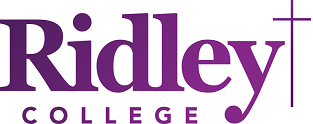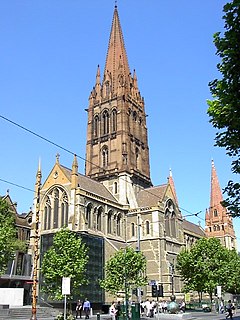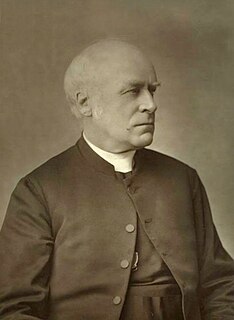Moore Theological College, otherwise known simply as Moore College, is the theological training seminary of the Diocese of Sydney in the Anglican Church of Australia. The college has a strong tradition of conservative evangelical theology with a strong emphasis on biblical languages, the use of primary sources and, critically, the importance of learning in community. It has developed three academic and ministry centres alongside its mainstream academic program, the Priscilla and Aquila Centre, which promotes women's ministry from a complementarian perspective, the Centre for Christian Living, which seeks to provide resources to the general Christian public for intelligent gospel engagement with the wider community, and the Centre for Ministry Development, which provides specialised continuing training and education for graduates and others involved in Christian ministry.
Adelaide College of Divinity (ACD) is an accredited higher education provider offering diploma, associate and bachelor's degrees, graduate diplomas, master and doctoral degrees in ministry, it is also a Registered Training Organisation offering certificates and a diploma.

Trinity School for Ministry (TSM), formerly known as Trinity Episcopal School for Ministry (TESM), an Anglican seminary located in Ambridge, Pennsylvania, a suburb of Pittsburgh. It is generally associated with low church, evangelical Anglicanism.

Phillip Aspinall is an Australian Anglican bishop. He has been the Archbishop of the Anglican Diocese of Brisbane, since February 2002 and was the Primate of the Anglican Church of Australia from July 2004 until he stood down on 4 July 2014. He succeeded Peter Hollingworth as Archbishop of Brisbane.

Wycliffe College is a graduate theological school of the University of Toronto. It is affiliated with the Anglican Church of Canada and is evangelical and low church in orientation. On the other hand, the University of Toronto's other Anglican college, the University of Trinity College, is Anglo-Catholic in outlook. While being an Anglican seminary, Wycliffe College attracts students from many Christian denominations. As a founding member of the Toronto School of Theology, students are free to participate in the wide range of courses from Canada's largest ecumenical consortium. It trains those pursuing ordination as well as those preparing for academic careers of scholarship and teaching.
The Licentiate of Theology or the Licence in Theology is a theological qualification commonly awarded for ordinands and laymen studying theology in the United Kingdom, Malta, Canada, Australia, and New Zealand. The academic rank varies from undergraduate degree to master's degree.

Ridley College, formerly known as Ridley Melbourne, is a Christian theological college in the parklands of central Melbourne. Established in 1910, it has an evangelical foundation and outlook and is affiliated with the Australian College of Theology and the Anglican Church of Australia. The college offers on-campus and distance learning and provides training for various Christian ministries in a range of contexts.

Stirling Theological College is a Christian theological college located in Mulgrave, a south eastern suburb of Melbourne, Victoria, Australia.

The Anglican Diocese of Melbourne is the metropolitan diocese of the Province of Victoria in the Anglican Church of Australia. The diocese was founded from the Diocese of Australia by letters patent of 25 June 1847 and includes the cities of Melbourne and Geelong and also some more rural areas. The cathedral church is St Paul's Cathedral, Melbourne. The ordinary of the diocese is the Archbishop of Melbourne, Philip Freier, who was translated from the Anglican Diocese of The Northern Territory.
The Reverend Professor Ian James Mitchell Haire AC is a theologian and Christian minister of religion. He is Professor Emeritus of Charles Sturt University, Australia and Past Executive Director of the Australian Centre for Christianity and Culture. He was formerly the fourth President of the National Council of Churches in Australia and the ninth President of the Uniting Church in Australia.
Jeremy Nigel Morris is a British historian, Church of England priest and academic. He specialises in church history. Since 2014, he has been Master of Trinity Hall, Cambridge. Previously, he was Dean of Trinity Hall from 2001 to 2010, and Dean of the Chapel of King's College, Cambridge from 2010 to 2014.
John Walder Dunlop Holder was a Barbadian Anglican archbishop. He was the Anglican Archbishop of the West Indies and held the See of Barbados.
James Alexander Grant AM is a retired Australian Anglican bishop who was the Dean of Melbourne from 1985 to 1999.
Joanne Caladine Bailey Wells is a British Anglican bishop, theologian, and academic. Since 29 June 2016, she has been the Bishop of Dorking, a suffragan bishop in the Diocese of Guildford. Previously, she was a lecturer in the Old Testament and Biblical theology at Ridley Hall, Cambridge, and then associate professor of Bible and Ministry at Duke Divinity School, Duke University. From 2013 until she fully took up her bishop's role on 25 September 2016, she had served as Chaplain to the Archbishop of Canterbury.










